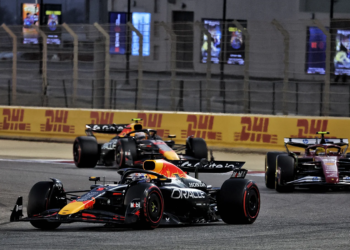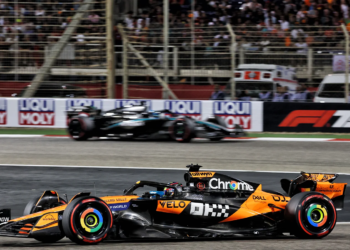The FIA has confirmed that it will lift restrictions on unvaccinated personnel in the Formula 1 paddock for the 2023 season.
F1 has been operating under a strict set of protocols since the start of the COVID-19 pandemic in 2020.
For 2021, media and other personnel returned to the paddock as the FIA began to ease restrictions, while 2022 saw the mask mandate and compulsory testing ended.
Following a gathering of the World Motor Sport Council, the FIA has confirmed that in 2023, those who are unvaccinated against Covid-19 will be allowed re-entry into the paddock.
In addition, there will no longer be on-site testing facilities organised by the FIA, however they will continue to inform stakeholders about test availabilities local to the circuits.
The relaxation of the rules falls in line with the outlook of worldwide governments, with many countries now allowing test-free access across their borders.
However, the FIA has outlined that those who have COVID-19 symptoms or a confirmed COVID-19 infection will not be allowed in the paddock.
This means that should a driver test positive for COVID-19, they would not be permitted to take part in the race weekend.
At the start of the year, some drivers questioned whether it was right to force a driver to miss a race event if they were diagnosed with Covid-19.
“I think Covid has evolved so much that I think the best judge will be ourselves to know,” said Red Bull’s Sergio Perez at the season-opening Bahrain Grand Prix.
Since 2020, several drivers, including Perez, have been forced to miss a race due to testing positive.
“If there is a sport that I think you can compete without spreading the virus too much or at least zero, I think it is Formula 1,” added Ferrari’s Carlos Sainz, speaking in March earlier this year.
“I think you could do all the meetings back in your hotel room, arrive to the paddock 15 minutes before the session with your suit and your helmet on, jump in the car and go.”










Since Pfizer, Moderna, and the CIA-controlled media are finally acknowledging vaccine side effects, this is not surprising.